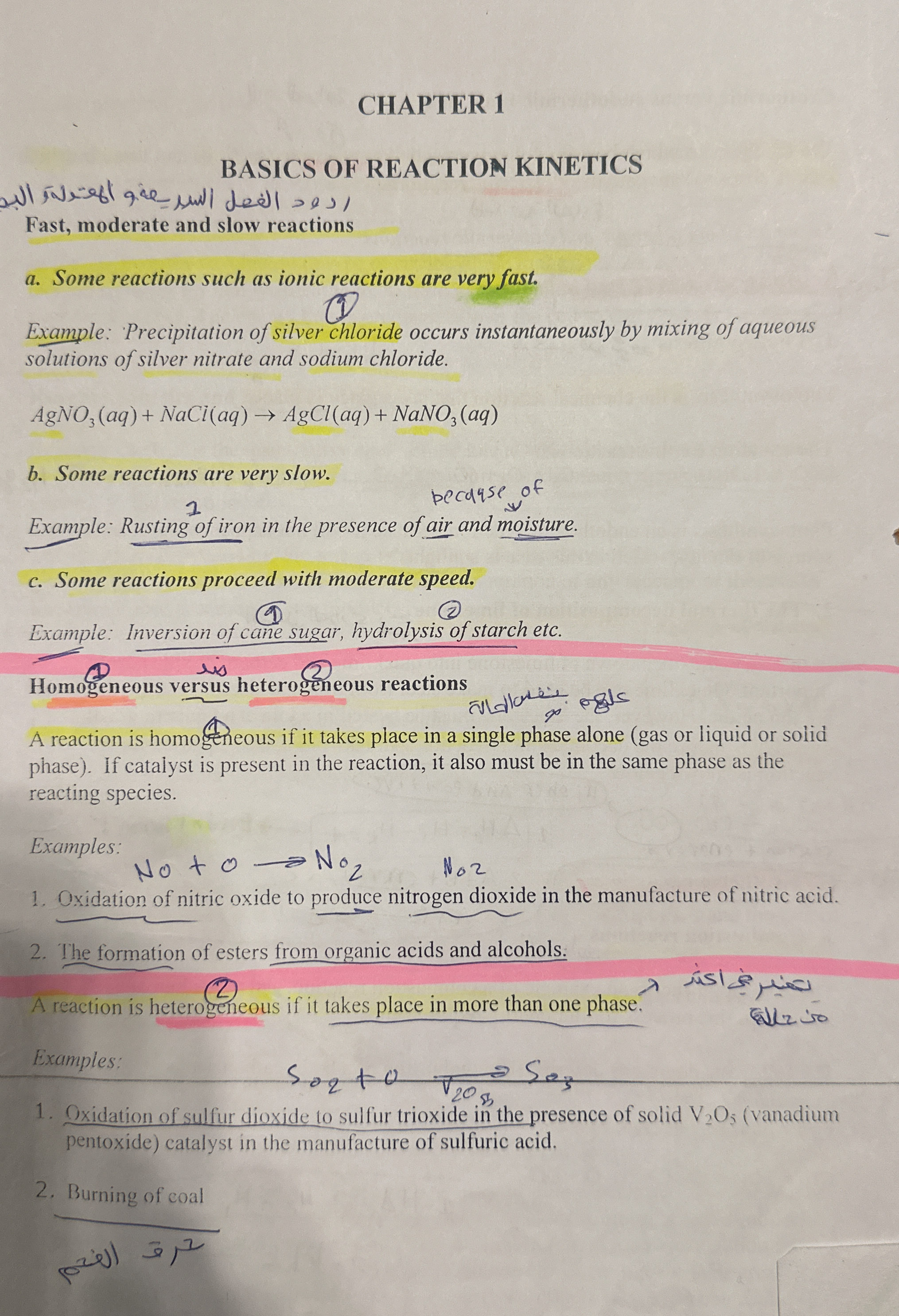What are the differences between fast, moderate, and slow reactions in the context of reaction kinetics?

Understand the Problem
The text provides an overview of reaction kinetics, describing the speed of different reactions (fast, slow, and moderate) and distinguishing between homogeneous and heterogeneous reactions with examples.
Answer
Fast reactions are instantaneous, slow reactions take a long time, and moderate reactions have noticeable speed.
Fast reactions occur almost instantaneously, such as ionic reactions. Slow reactions, like rusting, take a long time due to factors like air and moisture. Moderate reactions, like the inversion of cane sugar, proceed at a noticeable but not rapid pace.
Answer for screen readers
Fast reactions occur almost instantaneously, such as ionic reactions. Slow reactions, like rusting, take a long time due to factors like air and moisture. Moderate reactions, like the inversion of cane sugar, proceed at a noticeable but not rapid pace.
More Information
Reactions are categorized by speed based on the time they take to complete and the conditions under which they occur. Reaction speed is influenced by factors like concentration, temperature, and catalysts.
Tips
A common mistake is assuming reaction speed is constant for all reactions; it's influenced by specific conditions.
Sources
- 4.1: The Speed of Reactions - Chemistry LibreTexts - chem.libretexts.org
- what is slow? fast? - CHEMISTRY COMMUNITY - Laurence Lavelle - lavelle.chem.ucla.edu
AI-generated content may contain errors. Please verify critical information